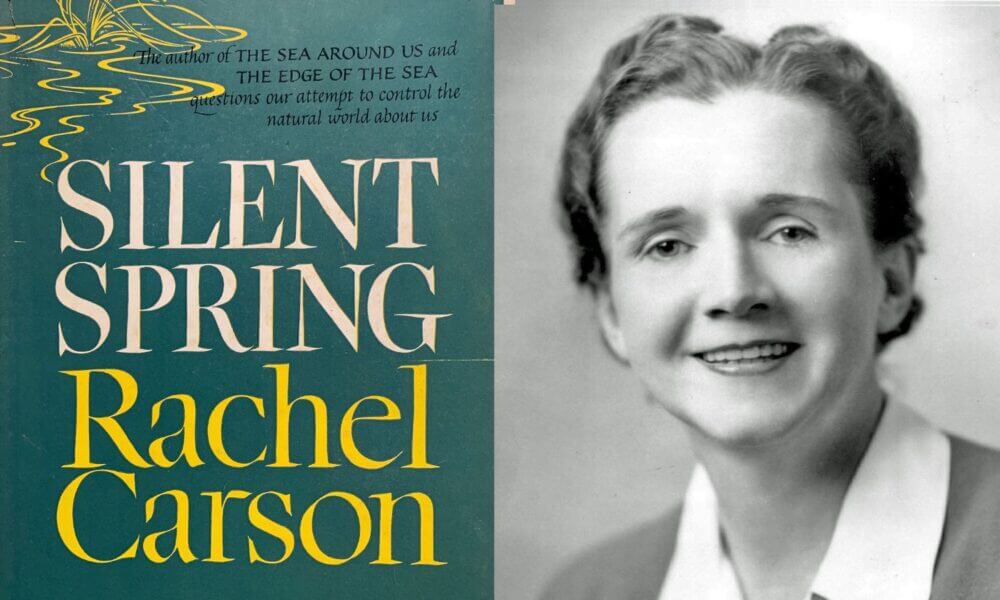Silent Spring (1962)

Title: Silent Spring
Author: Rachel Carson
Year of Publication: 1962
Genre: Non-fiction, Environmentalism
Setting: United States and various locations impacted by pesticide use
Summary: "Silent Spring" is a groundbreaking and influential book that exposed the environmental and health hazards associated with the widespread use of pesticides, particularly DDT (dichloro-diphenyl-trichloroethane), in the United States. Rachel Carson, a marine biologist and conservationist, meticulously researched and documented the detrimental effects of pesticides on ecosystems, wildlife, and human health. The book raises concerns about the indiscriminate use of chemicals, their persistence in the environment, and the long-term consequences of pesticide exposure. "Silent Spring" ignited a nationwide debate and led to significant changes in environmental policy, ultimately spurring the modern environmental movement.
Major Themes:
- Environmental Pollution: Carson highlights the detrimental effects of pesticides on the environment, particularly on birds, insects, and other wildlife, and the subsequent disruption of ecosystems.
- Human Health Impacts: The book explores the potential health risks associated with pesticide exposure, drawing attention to the links between chemical use and diseases, such as cancer and reproductive issues.
- Ecological Balance: Carson emphasizes the importance of maintaining a balanced and healthy environment, urging readers to consider the interconnectedness of species and ecosystems.
Awards: While "Silent Spring" did not receive any major literary awards, its impact and significance in the field of environmentalism have been widely recognized. Rachel Carson posthumously received the Presidential Medal of Freedom in 1980 for her contributions to environmental conservation.
Legacy: "Silent Spring" is often credited with sparking the modern environmental movement and has been instrumental in raising public awareness about the detrimental effects of pesticides and the importance of environmental conservation. The book led to increased regulation of pesticides in the United States, including the banning of DDT for agricultural use. Carson's work inspired generations of environmental activists and influenced the development of environmental policy and advocacy. "Silent Spring" remains a seminal work that highlights the need for responsible and sustainable approaches to protecting the environment and ensuring human and ecological well-being.
